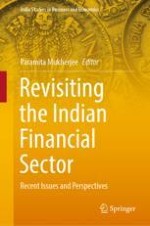2022 | OriginalPaper | Buchkapitel
The Impact of the Largest Shareholder on Dividend Payout Policy: Evidence from Indian Business Groups
verfasst von : Poulomi Lahiri
Erschienen in: Revisiting the Indian Financial Sector
Verlag: Springer Nature Singapore
Aktivieren Sie unsere intelligente Suche, um passende Fachinhalte oder Patente zu finden.
Wählen Sie Textabschnitte aus um mit Künstlicher Intelligenz passenden Patente zu finden. powered by
Markieren Sie Textabschnitte, um KI-gestützt weitere passende Inhalte zu finden. powered by
